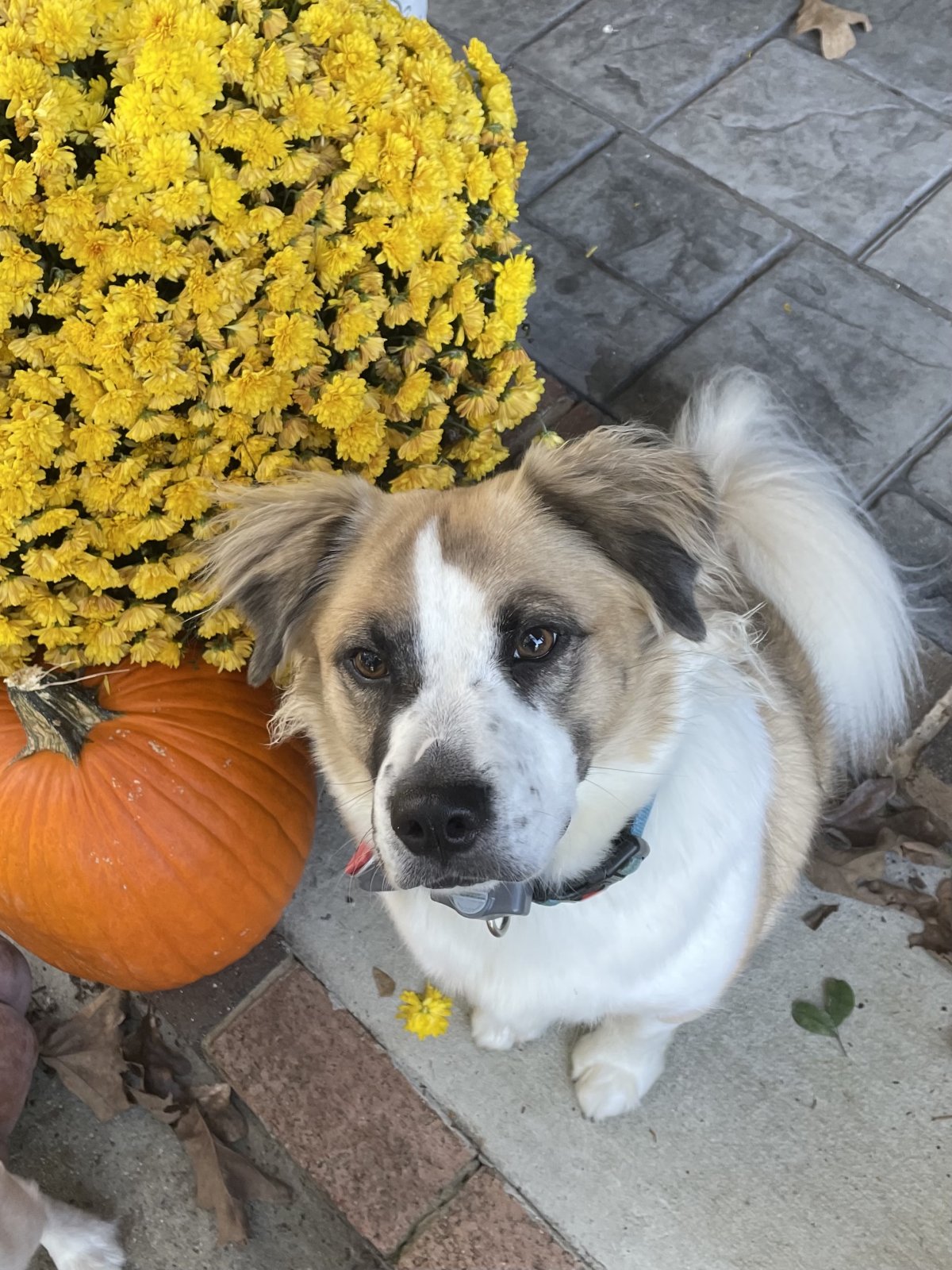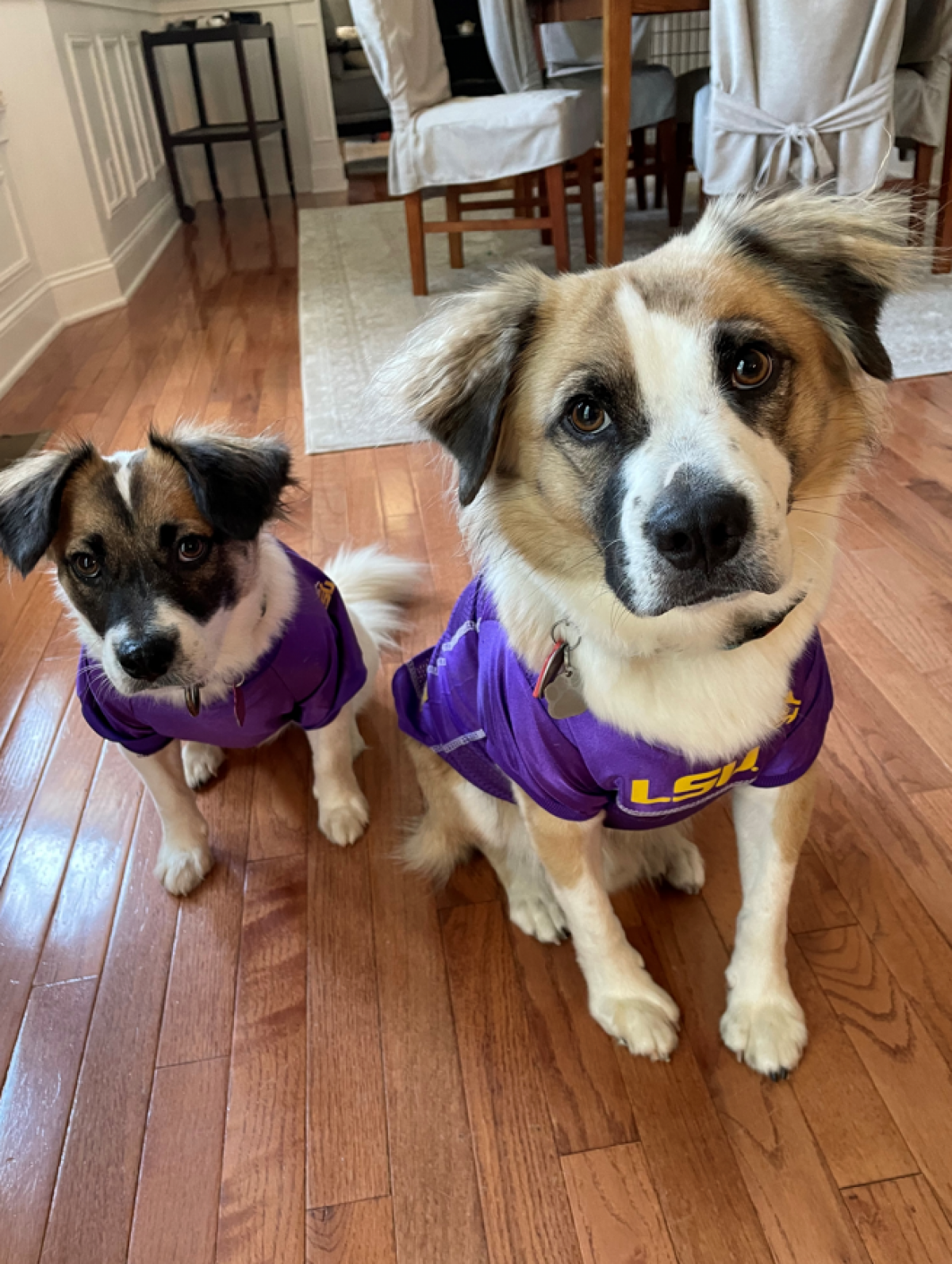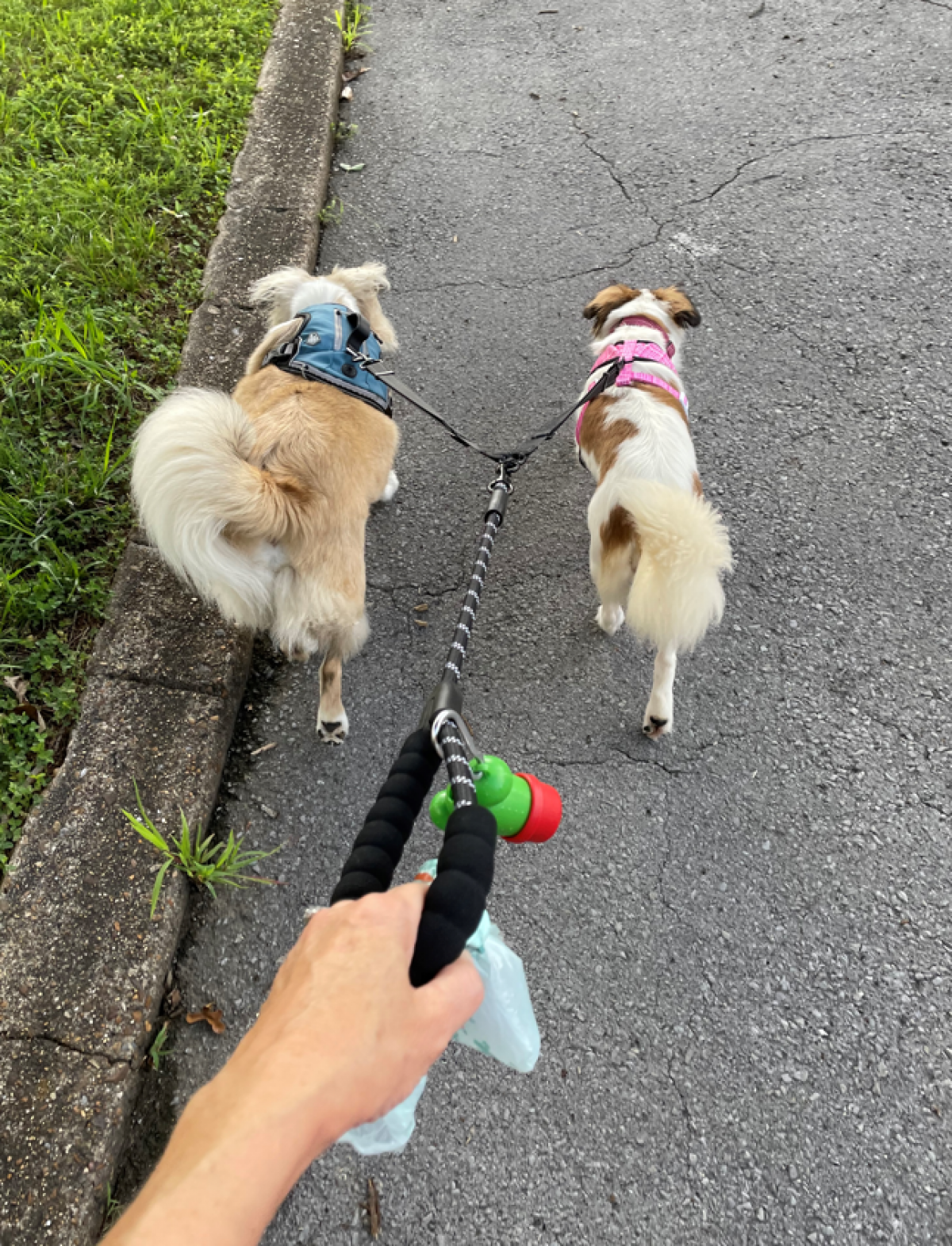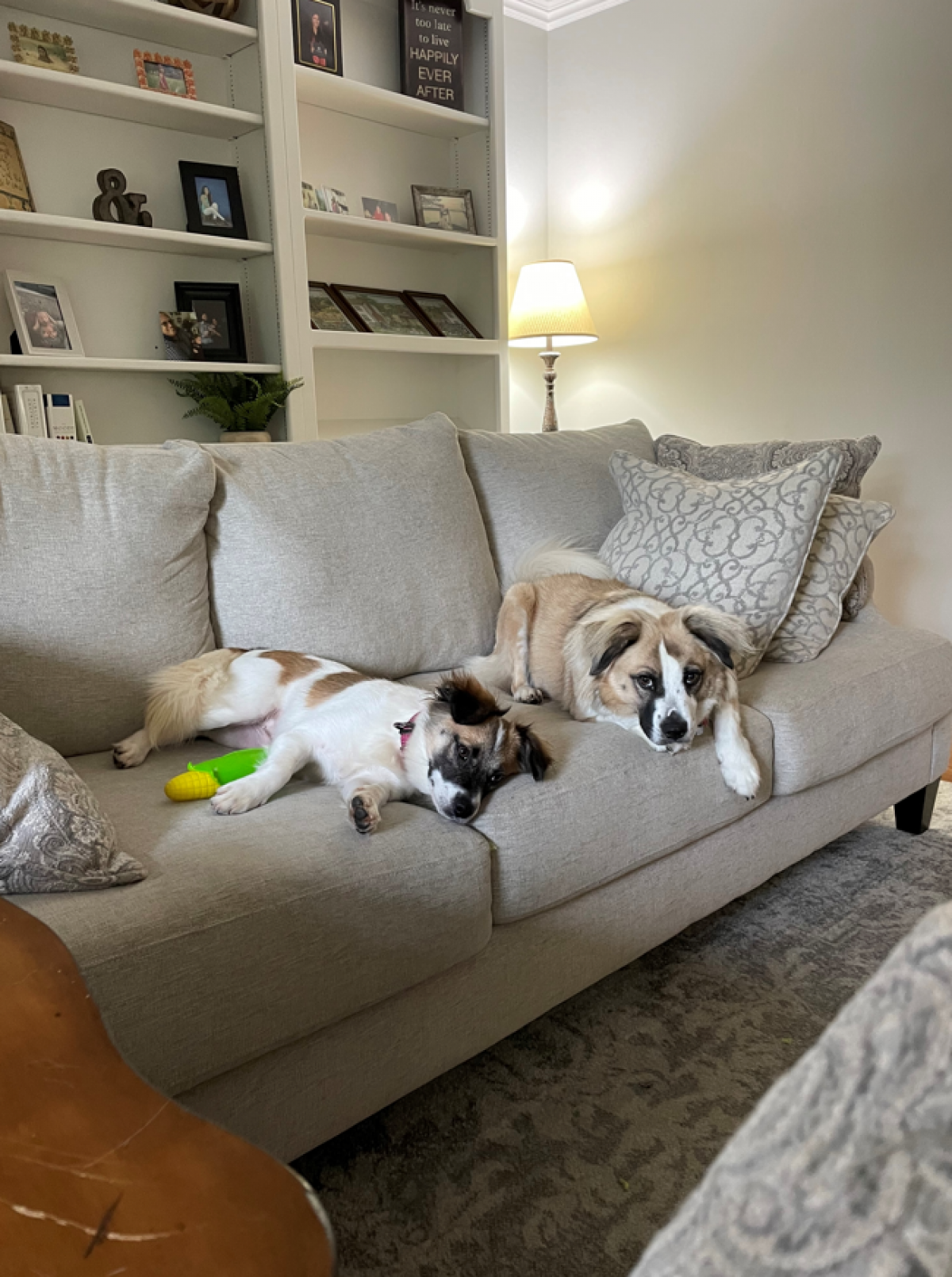When Tennessee dog owner Jane Flanders Salazar discovered that her beloved dog Diego would turn blind in the future, she rescued a second dog from a nearby shelter as a recommended companion. What she didn't realize was that she had in fact found his full sister.
Salazar and her husband had used dog DNA test site Embark, initially just to find out his breed—Pitbull and Australian Cattle Dog, but his health results showed far more important information. Just one year after adopting Diego in 2020, the then 2-year-old was discovered to have "two copies of a bad eye gene" which meant he would be likely to go blind by the time he is five.
"I was really sad about it. I wished I wouldn't have even done it at first. I was like, 'Gosh, why did I do this?'" Salazar told Newsweek.
There's no treatment for Diego's vision-loss, which has already started, but there was one thing the veterinary ophthalmologist recommended: a companion to help him through it.
"I did some investigation and that also confirmed that one of the best things you can do for a dog that's going to lose his vision is get him a companion to be fully bonded with before he loses his sight. So then I started looking for another one," she said.

Salazar began looking to local rescue shelters to find Diego's new friend, and by stroke of coincidence, found one that looked similar to him. "It was Dixie," she said. "It looked a lot like Diego, but smaller, and so we pursued adopting her and our application was approved."
After the life-changing news Embark provided for Diego, it was only natural she did the same for Dixie. "I had convinced myself that it was just a coincidence that they looked alike because her behavior is completely different from Diego's. She's very prey driven, she's very loving and very people orientated. He's a little more timid and aloof, so they just didn't behave the same way."
The DNA results told Salazar that like Diego, Dixie also had genes that could lead to health problems. "She has two copies of something that might lead her to disc disease," she explained.
But the results also found something that linked the two dogs way more than Salazar could ever have imagined. They were full siblings. "That was pretty shocking," she said.

Already though, the pair had a sibling relationship not far from most: "Dogs that are losing their vision are a little bit reactive and defensive, because they don't see as well. And so he's not the best at playing like he was uninvited to go back to doggy daycare, because he just is not the best at playing stuff," said Salazar. "But she plays with him beautifully. I mean, she can, she can take whatever he gives her. They love each other. I mean, they kind of rough house a lot. But she's, she's been very good for him socially."
Despite their background not being completely confirmed, owner Salazar believes they're the product of "an irresponsible dog owner out in North Georgia," due to their test results showing both are 30 percent inbred, likely causing their health issues.
According to Embark, 90 percent of dogs tested will have at least one dog in the database as genetically related as human first cousins, and 12 percent discover their dog's siblings, parents or children through the Relative Finder feature.

Emma-Jean Weinstein, Embark's PR manager, told Newsweek that while they've seen similar stories, including one owner who found their new dog was a relative of their previous dog who died, Salazar's is the first they've heard of adopted siblings turning out to be real siblings too.
Using the Relative Finder, Salazar managed to track down another sibling of Diego and Dixie in a nearby area, who is likely a litter mate of Diego's, but hasn't had luck in uniting them just yet.
"I've tried to contact those people and I think they think I'm a crazy dog lady because I don't get any response," she laughed.

Uncommon Knowledge
Newsweek is committed to challenging conventional wisdom and finding connections in the search for common ground.
Newsweek is committed to challenging conventional wisdom and finding connections in the search for common ground.
About the writer
To read how Newsweek uses AI as a newsroom tool, Click here.








